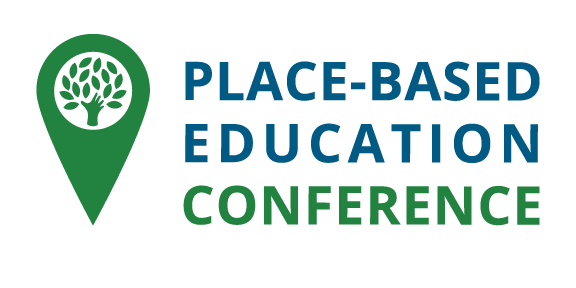Presentations
The Great Lakes Stewardship Initiative is convening place-based education experts, practitioners, and newcomers in Grand Rapids, Michigan, for our 8th national Place-Based Education Conference.
To help structure the schedule for attendees with specific interests, the conference planning team has established several “strands” (listed below).
We are so grateful to all of the amazing professionals who are sharing their experiences and expertise with us at this year’s conference. Click below to view the 2023 PBE Conference Program.
2023 Conference Strands
Climate and Place-Based Education
A recent Brookings Institute report calls for a new educational approach—the new green learning agenda—to educate and engage people through climate action projects in their homes, schools, and communities. Place-based education is a useful strategy for this agenda and can help advance climate adaptation and resilience.
For example, presentations in this strand might focus on:
- Helping learners understand the basics of climate science
- Communicating with young people—or helping them communicate with others—about climate change
- Creating local awareness of the impacts of climate change
- Building climate resilience in schools and communities
Ecological/Social Justice and Place-Based Education
Place-based education is a powerful way to explore and address ecological and social justice, including topics such as democracy, diversity, interdependence, ecojustice, equity, inclusion, disability justice and rights, indigenous approaches to place-based education, and youth voice.
For example, presentations in this strand might focus on:
- Fostering learners’ racial and cultural identities through place-based education
- Using place-based education to address challenges facing impoverished or marginalized communities
- Creating access to place-based and outdoor experiences for people with disabilities
- Exploring the intersections of ecological and social justice in the context of place
Foundational Place-Based Education
Effective place-based education often features certain elements, strategies, and tools that help engage learners with their peers, their places, and their communities.
For example, presentations in this strand might focus on:
- Recognizing or documenting the benefits of place-based education for students, schools, and communities
- Highlighting instructional strategies that support place-based education (e.g., using inquiry; encouraging students’ voice and choice)
- Developing school-community partnerships
- Sharing ideas/processes for planning, implementing, and/or assessing place-based education efforts and projects
Great Lakes Literacy and Place-Based Education
Based on their total area, the Great Lakes comprise the largest group of freshwater lakes on Earth. By volume, they contain 21% of the world’s surface fresh water. Our own future is inextricably tied to the future of the Great Lakes.
For example, presentations in this strand might focus on:
- Using the Great Lakes Literacy Principles to strengthen and contextualize place-based efforts within the Great Lakes region
- Creating partnerships among state/federal agencies and schools
- Connecting Great Lakes literacy with state-level academic standards
- Integrating a Great Lakes field trip with a broader place-based education effort
STEM-Rich Place-Based Education
Place-based education encourages students to apply their knowledge to address real-world problems in their communities. The learning is often interdisciplinary, suggesting that place-based education can be a valuable approach in STEM (science, technology, engineering, and math) education.
For example, presentations in this strand might focus on:
- Aligning place-based education and STEM with NGSS and Common Core
- Developing partnerships with the technology industry
- Using place-based education to raise students’ awareness of STEM careers
- Highlighting strategies for connecting in- and out-of-school STEM learning
REVIEW CRITERIA
Presentation proposals will be reviewed and rated based on the following criteria:
- Organization and clarity
- Connection between the presentation’s focus/topic and place-based education
- Nature and quality of intended outcomes for attendees
SUBMISSION DEADLINE (closed!)
The deadline for submitting proposals was 11:59 p.m. on Wednesday, September 20, 2023.
REVIEW TIMELINE
Primary presenters will be informed of their proposal’s status via e-mail no later than October 4, 2023. Primary presenters are responsible for notifying others on their team.
CONFERENCE REGISTRATION
As a non-profit organization, the GLSI depends on sponsorships and registration fees to cover most of our conference expenses. We strive to keep our registration rates at or below those of similar, multi-day national events. We require all presenters to register for the conference, and we do not offer “presenter discounts.” (Note: Presenters may qualify for one of our established discounts—please check out our rates page for more information.)
Thank you for your willingness to share your time, knowledge, and expertise with others!
Questions? Please contact Jan Sneddon at conference@greatlakesstewardship.org.
